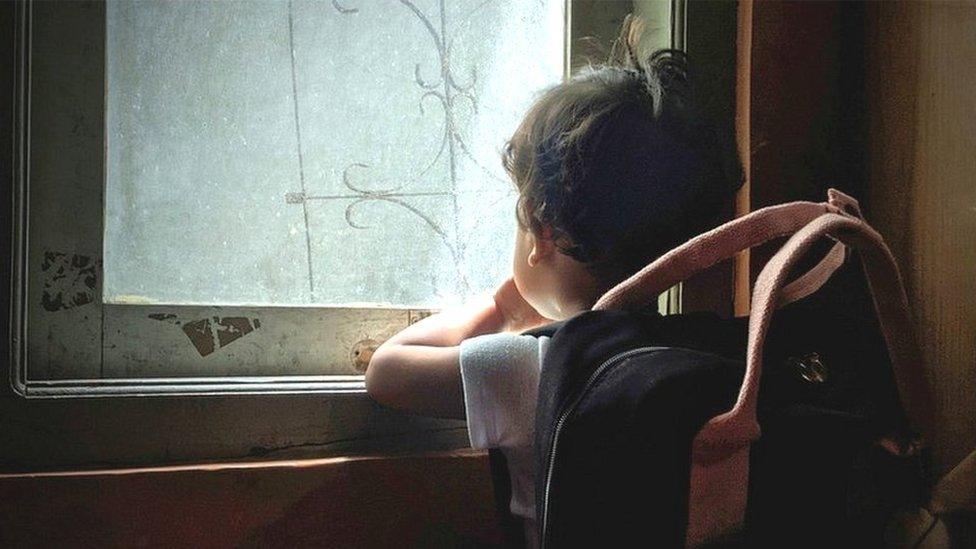Cost of living: Rise in Big Issue sellers to top up income
- Published
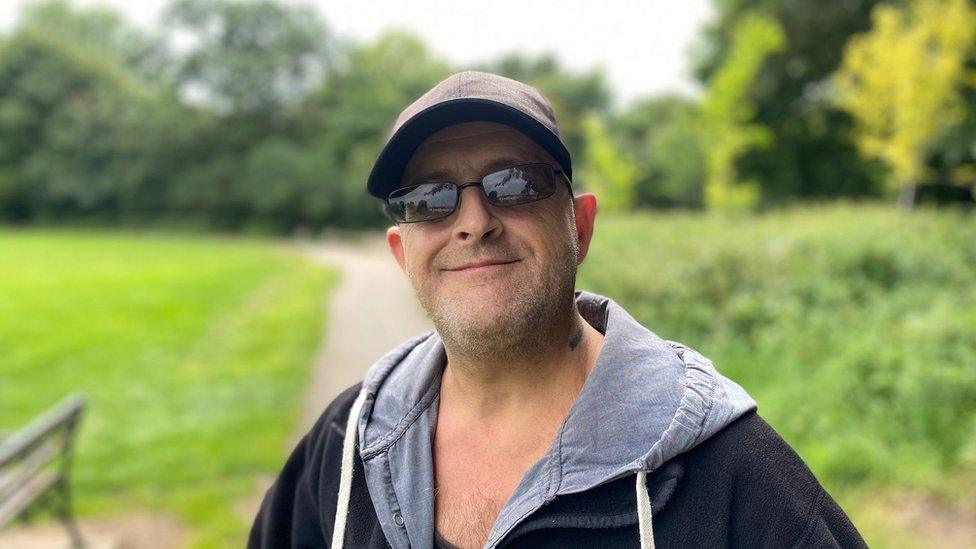
Stuart Drucker became homeless at 16 but now is able to rent a flat
Big Issue vendors are being hit by the "sharp end" of the cost of living crisis, the magazine's frontline director has said.
Inquiries about becoming a seller have increased by 10%, and Cardiff has seen its number double.
Their reasons range from homelessness to topping up their income.
Big Issue's Chris Falchi-Stead said there was also an increase in vendors facing mental health difficulties due to the economic climate.
Stuart Drucker, from Caerphilly, who was homeless on and off for about four years from the age of 16, now rents a flat with the help of Universal Credit and sells the Big Issue.
But the cost of living makes him worry as he faces a rent increase of £100.
"That was a bit of a shock," he said. "First thing I thought was: 'Oh, my God, I'm gonna be homeless again'. I can't start all over again. It'll kill me."
Now 49, he craves stability. "Money always worries me. Cost of living, it's just horrendous," he said.
When he walks around he "looks for places to sleep" as if he is still homeless. His homelessness in the past drove him to alcoholism and drug abuse.
"No-one worries about you. No-one cares about you. You could be dead and people wouldn't know," he said.
He made the decision to go to rehab after becoming addicted to heroin. Then he began selling the Big Issue every day, which gave him "focus" and an aim to "become one of the best vendors around".
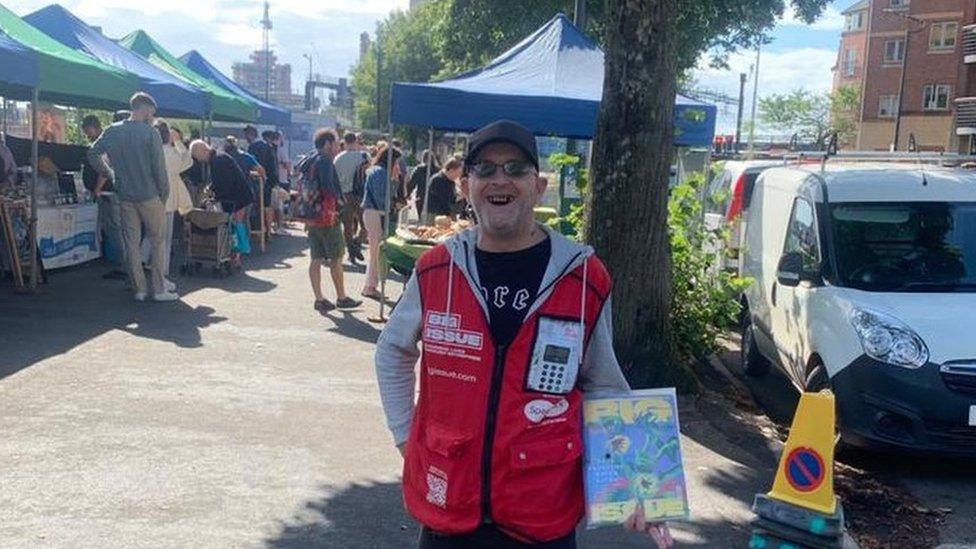
Stuart Drucker says selling the Big Issue gave him focus
"There's help there, but you've got to want it," he said.
He said it has been "really hard lately", as the Big Issue has increased in price and people are "tightening their belts".
Mr Drucker keeps half of the £4 he sells each magazine for at farmers' markets every weekend in Cardiff.
"My life's a lot better. I get up in the mornings. I'm still a bit ill because of my anxiety, but it's not from alcohol, drugs," he said. "I got control of my own money and my own life."
"The best thing is my kids can rely on me.
"I know a lot of people on the streets who are using, and I want to help them, because I don't like seeing them fading away. They're my friends, some of them. And I've lost too many," he said.
"I had no job, no money, nothing. I was sat on the floor. Basically someone just picked me up and told me just come and sell the Issue. I never looked back then."
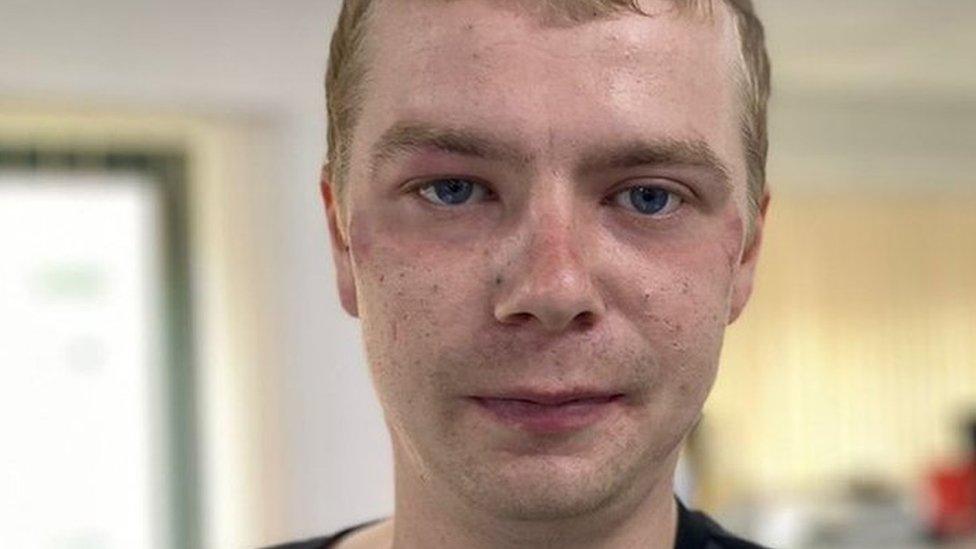
Louis Paul Hague says the Big Issue has "done a lot... they definitely believed in me"
Louis Paul Hague, 27, from Cardiff, has been selling the Big Issue for about two years after being homeless for eight months.
"The hardest part was going to the toilet and just having a wash. Those human things you need to do, to get through the day," he said.
During his time on the street, he became addicted to spice which he described as "hell". He is now off the drug, and has been renting for seven years.
"The Big Issue's done a lot. They definitely believed in me," he said.
"I've always got clothes now, my bills always paid on time, my rent's good, my electric's always on."
Mr Paul Hague has been trying hard to find a job, but until he does he sells the magazine in Cardiff city centre every day.
"Without them I don't know where I'd be right now. Probably sat on the street begging," he said.
Mr Falchi-Stead said there had been an unprecedented rise in the number of new vendors over the past year.
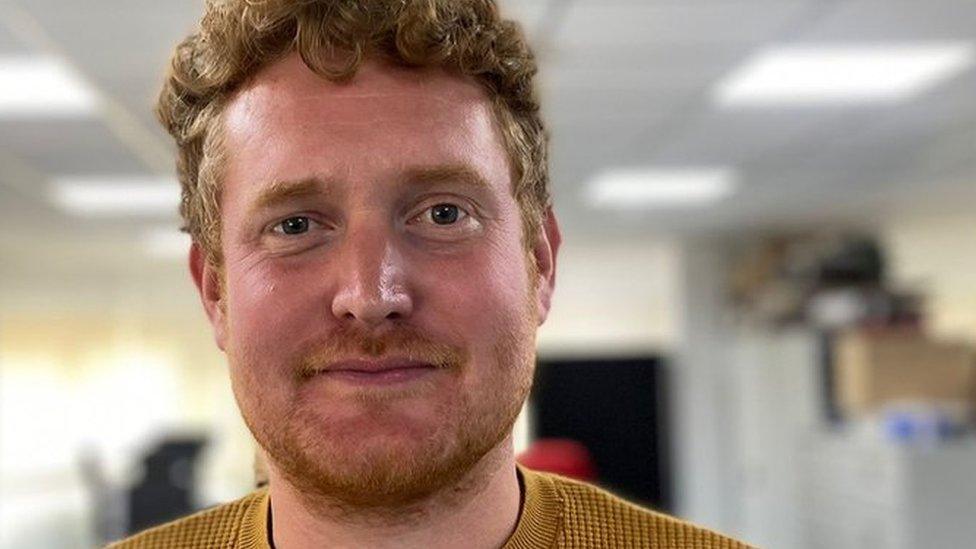
"It's a tough, tough thing to be doing day in and day out in all weathers and selling the magazine in the current climate," says Chris Falchi-Stead
"We've seen a 10% rise in the number of people coming to us to become vendors over the last year, which just goes to show how much the cost of living crisis is really beginning to impact people," the 35-year-old said.
In Cardiff alone there has been "more than double the number of vendors" than this time last year.
Mr Falchi-Stead said the Big Issue was not only for homeless people, but "people whose lives are blighted by poverty", and to "help anyone who walks through our door".
Vendors range from homeless people, to those who have recently become unemployed, or just "looking for a way to earn a bit more money".
"Anyone who's coming to sell the magazine has made that very brave decision that they want to work their way out of poverty," he said.
"It's a tough, tough thing to be doing day in and day out in all weathers and selling the magazine in the current climate."
The Welsh government said it was "providing targeted help for those who need it the most".
It said it "recognises the significant impact that inflation has had for people struggling to pay essential bills, including housing costs, and are investing over £210m in homelessness prevention this year".

ONE MAN AND HIS ISLAND: What's life like for Flat Holm Island’s newest warden?
YR WYDDFA: Life on Britain's busiest mountain

Related topics
- Published24 May 2023

- Published19 January 2023

- Published3 January 2022
